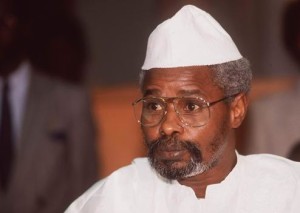Senegalese authorities have ruled on Friday 13 February that Hissène Habré, a former President of Chad, will stand trial to face charges of crimes against humanity, war crimes and torture.
The Extraordinary African Chambers, an internationally backed court, was set up by Senegal and the African Union in February 2013 to prosecute “the person or persons most responsible” for international crimes committed in Chad during Habré’s eight-year rule.
After a 19-month investigation, a four-judge panel revealed that there was sufficient evidence that serious breaches of international law were committed during Habré’s presidency, which lasted from 1982 to 1990.
According to a 1992 Chadian Truth Commission, Habré’s government was responsible for conducting 40,000 political murders and systematically torturing more than 20,000. The government periodically targeted various ethnic groups such as the Hadjerai and the Zaghawa, killing and arresting group members en masse when it was perceived that their leaders posed a threat to Habré’s rule.
Habre was deposed in 1990 by Idriss Déby Itno, the current president of Chad, after which he fled to Senegal where he has been living in exile since.
The trial will be conducted before a panel of two Senegalese judges and a non-Senegalese judge from another African Union member state. The trial is expected to begin in May or June this year.
In 2013, the Prosecutor of the Extraordinary African Chambers sought an indictment of five other top officials from Habré’s regime suspected of being responsible for committing international crimes. However, three of the suspects are at large while the other two are currently standing trial in court in Chad on similar charges, and Chad has refused to transfer them to the Extraordinary African Chambers in Senegal.
The trial will be the first case in Africa to rely on “universal jurisdiction” to prosecute a former ruler for alleged atrocities committed in another country. Habre was charged by Belgium with crimes against humanity and torture in 2005 but Senegal refused four extradition requests.
Since the International Criminal Court only has jurisdiction over crimes committed after July 1 2002, and the crimes of which Habré is accused were perpetrated between 1982 and 1990 Habré can not be prosecuted by the International Criminal Court in The Hague.

